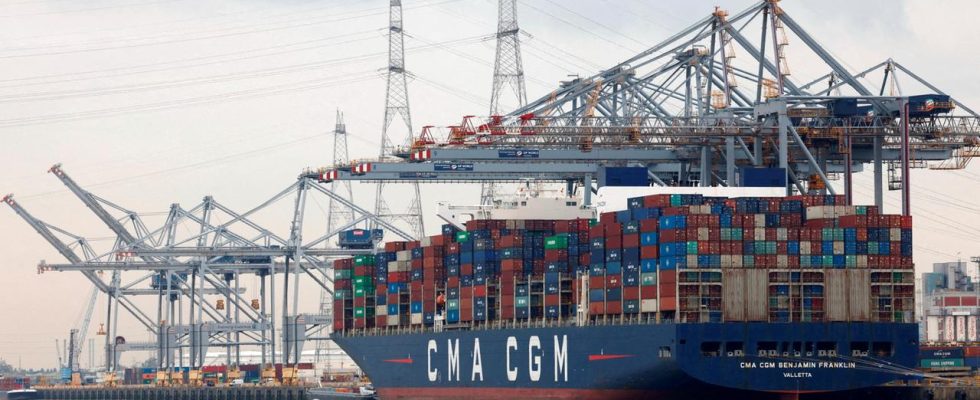The pressure from the cocaine cartels is growing. This is particularly noticeable in the large ports such as Antwerp, Rotterdam and Hamburg. A new EU port alliance is intended to counteract this.
Cranes, containers, cargo ships, warehouses as far as the eye can see: the impressive backdrop of Europe’s second largest port, Antwerp, set the scene. The area is the size of 20,000 football fields. And that shows the magnitude of the task, said EU Interior Commissioner Ylva Johansson. “Antwerp is such a huge port, with so many players, so many companies. It is fundamental that they are now all working together for our security for the first time.”
Nowhere in Europe was more cocaine discovered last year than in Antwerp – almost 120 tonnes. A record high – and yet probably only a fraction of the cocaine that was actually brought in through the port. Around 70 percent of the seized drugs are smuggled into the European Union by sea.
Rotterdam and Hamburg are also in the focus of the drug cartels. And these are flexible, which makes it a pan-European problem – says Johansson: “We now know that when we increase security measures at one port, they move to other ports within weeks. That’s why only a collaborative approach helps to combat drug gangs.”
Violence should not spill over into Germany
The new EU port alliance therefore brings everyone together: EU security authorities, port operators and – very importantly – the private sector, shipping associations for example. It is now clear that in order for port business to continue to be good, more must be done to ensure security in the future. Threats, exchanges of fire and explosions are no longer uncommon in Antwerp.
And the growing pressure from the drug cartels is currently also noticeable in Germany, said Federal Interior Minister Nancy Faeser (SPD). She is also pushing forward the new port alliance at the meeting of her European departmental colleagues in order to end a spiral of violence. “Investigators in the Netherlands and Belgium have even discovered torture chambers. Or we have seen journalists and prosecutors threatened or even murdered there. And that in the middle of Europe.” According to his own statements, Faeser absolutely wants to prevent the violence from spreading to Germany.
According to the EU Commission, a good 35 tons of cocaine were seized in German ports such as Hamburg and Bremerhaven. In Hamburg, the drug gangs even tried to recruit dock workers and use them for illegal deals. The German Interior Minister therefore called for high pressure to investigate. “It is also, of course, about good prevention. What is particularly important is to make the port employees more resilient and therefore more resilient to corruption,” says Faeser.
Greatest threat to internal security
And it’s about drawing attention to the great danger to democracy and the economy that comes from bribery and money laundering. According to Europol, drug trafficking is now the biggest threat to Europe’s internal security – on a par with terrorism. EU Interior Commissioner Johansson is counting on new, improved cooperation. “I hope that soon we will see less cocaine on our streets – fewer murders. And that the organized criminal groups will not be so involved in the legal economy that they infiltrate the whole of society.”
“For now” – that’s how drastically Belgium’s Interior Minister Annelies Verlinden puts it, who sets the agenda due to her country’s Council Presidency. “She doesn’t live in a drug state yet,” she says. In order for it to stay that way, resistance is now needed.
Kathrin Schmid, ARD Brussels, tagesschau, January 25, 2024 8:58 a.m

